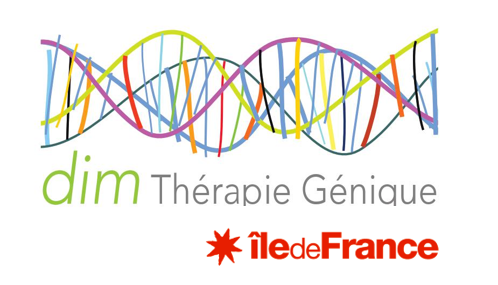Search together to benefit the largest number of people
Since its founding, Imagine has boosted the development of cross-disciplinary projects within research laboratories and teams. To give momentum to its innovative projects, an internal funding program was created: cross-lab. Promoting cross-disciplinarity, it aims to produce a leverage effect to raise the major public, national or European funds needed.
Five projects have been launched since the creation of the program, in the fields of microcephaly, mitochondrial and autoimmune diseases, keratinocyte-leukocyte interactions and artificial intelligence in dysmorphology.
Partner with the best in France and internationally
Since 2019, one of these Cross-lab programs initiated in 2017 on autoimmune and inflammatory diseases has benefited from the status “University Hospital Research in health” of the French Investments for the Future program, aiming to support innovative and large-scale research projects in the field of health. The ATRACTion project, led by Prof. Frédéric Rieux-Laucat at imagine Institute, associates several laboratories at Imagine and 10 academic partners (AP-HP, Inra, CEA, Pasteur Institute, Curie Institute, Universityé Paris Cité, Sorbonne Université, Inserm) or industry partners. It is based on multiple studies of single-cell analysis in particular, and on analysis of this big data by artificial intelligence. It relies on a consortium of 10 partners - in addition to Imagine - academic (AP-HP, Inra, CEA, Pasteur Institute, Curie Institute, Université Paris Cité, Sorbonne Université, Inserm) or industry. This project therefore paves the way for a much more personalized medicine and new therapeutic solutions based on new molecules or repositioning molecules already used in other diseases.
In 2017, the C’IL-LICO “Medicine of the future for ciliopathies with renal failure” led by Imagine was also among the 10 winners of the RHU call for projects selected by ANR. It aims to develop new diagnostic and therapeutic tools for patients suffering from these pathologies. The project, led by Prof. Stanislas Lyonnet over 5 years, also relies on a collaboration between the teams led by Sophie Saunier, Antonio Rausell, Nicolas Garcelon and Anita Burgun at Imagine with experts from Inserm, AP-HP, Strasbourg University hospital, Ecole Polytechnique and industry partners Alexion then Medetia SAS.
Promote the development of gene therapy
In 2017, the Paris Region labelled for a time period of 4 years (2017-2020), gene therapy as an Area of Major Interest (DIM) among 13 other regional DIM. The Area of Major Interest (DIM) is the result of a structuring policy of the Paris Region, which aims to foster innovation by leveraging the excellence of Paris Region teams, on subjects likely to generate innovation such as emerging therapeutic strategies like gene therapy.
This regional initiative with international spread is hosted by Imagine Institute and coordinated by Pr. Marina Cavazzana, Pediatrician at Necker-Enfants malades Hospital, and researcher at Imagine Institute.
The DIM Gene Therapy aims to federate Paris Region actors and accelerate the development of gene therapy to reinforce, in the light of personalized medicine, it grades among the most promising and innovative therapeutic strategies. By capitalizing on the expertise of scientists, clinicians and researchers from the network of 11 institutional partners, the DIM Gene Therapy aims to provide treatment for serious or chronic pathologies without treatment till today, or for which the medical care is still largely not satisfying. This is particularly the case for the 240 children born each year in Paris Region suffering from one of the two most severe forms of sickle cell disease, and for which no curative treatments exist. For this, the DIM Gene Therapy supports Paris Region researcher teams by financing doctoral and postdoctoral fellowships as well as scientific equipment. The DIM also organizes scientific symposia, business conventions in gene therapy field, as well as general public events to share with the greatest number, technological and therapeutic advances in this field.
To date, the DIM Gene Therapy has supported 67 research projects by financing fellowships and scientific equipments among 11 thematic that fit within the priorities of the Paris Region in terms of public health. In particular, the DIM Gene Therapy enabled the recruitment of 13 technicians and engineers, 2 PhD and 12 post-docs. With more than € 15 million raised for the development of gene therapies, the DIM allows by leverage effect to promote innovative therapeutic approaches by also involving companies in the field (pharmaceutical laboratories and startups).
The DIM Gene Therapy brings together 11 Paris Region institutional partners : APHP, CNRS, EFS, Généthon, Inserm, Institut de l’Audition, Institut de la Vision, Institut de Myologie, INTS, Université de Paris et Medicen.

